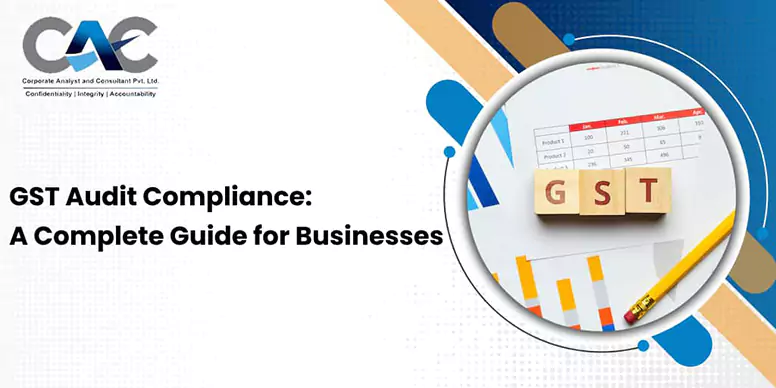The Goods and Services Tax (GST) has brought a unified taxation system in India, but it also comes with specific responsibilities for businesses. Among these responsibilities, GST audit compliance is one of the most important. Every business, whether small or large, must understand the basics of GST audits to ensure they operate within the framework of the law and avoid penalties.
What is GST Audit Compliance?
GST audit compliance is a procedure of scrutinizing accounts, returns and other financial records of a business to assess completeness and comply with regulations of GST. This audit guarantees that the number of turnovers, the taxes paid, the taxes that are claimed, and the input tax credit available is all reflected appropriately. Through these audits, tax authorities and the businesses can make sure that whatever they have done on GST is transparent and legal.
Who Needs to Undergo GST Audit?
GST audit will be required on businesses that exceed a given turnover limit. To take an example, when annual turnover of the business surpasses the stipulated government limit, the businesses are required to honor GST audit requirements. This will make sure that bigger businesses are responsible in their interaction with tax, since they have a greater amount of transactions to cope with. Nonetheless, even a business that is below the threshold must focus on compliance since it will evade drawing discrepancies in the case that they are being assessed or are undergoing an inspection.
Key Components of GST Audit Compliance
To understand the basics, it is important to know the main elements of GST audit compliance:
- Examination of Records– A thorough review of sales, purchases, and expense records.
- Verification of Returns– Matching GST returns filed with the actual books of accounts.
- Assessment of Input Tax Credit (ITC)– Ensuring that ITC claims are accurate and supported by valid invoices.
- Reconciliation of Turnover– Confirming that the turnover reported in GST returns matches with financial statements.
Importance of GST Audit Compliance for Businesses
To the business, GST audit compliances are not just a matter of strict compliances. It is a guard against frauds and inefficient financial management. When some businesses make correct tax reporting it will create credibility among the stakeholders, banks, and the regulators. In addition, compliance minimizes the chances of being penalized or sued, or losing the input tax credits because of deadlocks. It also clarifies the financial performance that is useful in long term planning.
Role of Professionals in GST Audit Compliance
GST regulations are seen to be complex by many businesses and particularly small and medium enterprises. In these instances, it is best advised that one consults the help of chartered accountants or tax advisors. Professionals will make sure the records are up to date, balancing the books are correct, and all forms are done within time. This is because their expertise has assisted businesses to evade costly mistakes and ensure that they have a clean record with tax agencies.
Conclusion
Learning GST audit compliance fundamentals is vital to any business. It helps create accountability in reporting, avoid financial mismatches and gain credibility to regulatory bodies. Although GST might seem complicated, when appropriately followed with the professional advice at hand, this process is going to be easy and not very demanding. Companies that pay utmost importance to GST audits are not only able to maintain their business legally but also laid the groundwork of sustainable growth.
Also Read: GST Audit: Ensuring compliance and accuracy
















